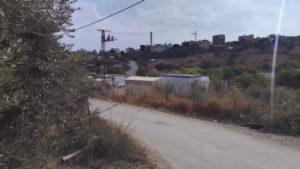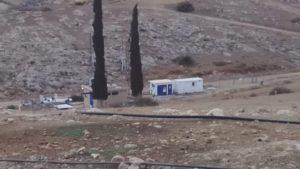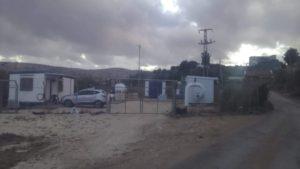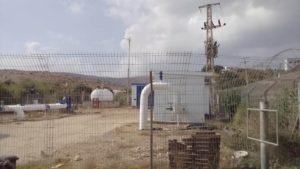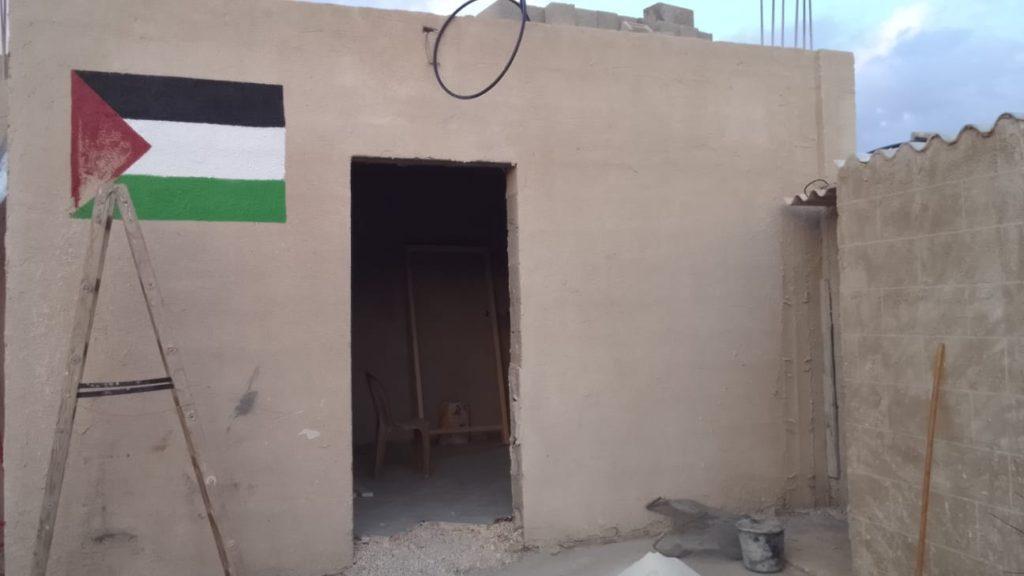I’m currently staying in the village of Bardala, which is in the far north of the Jordan valley only 4K from a checkpoint into ’48. Bardala is in Area A, which is supposed to mean under Palestinian control, but in reality, as everywhere, the Israeli regime can act as it wants. Most crucially, they control water and access to land which means that this farming community constantly struggle to maintain their livelihoods. Yesterday I walked up out of the village following a long valley into the hills above Bardala. This whole area is Area C and designated a closed military zone, meaning that the Israeli Army can train and “practice” here at will, including forcing any farmers who try to live here to leave at any point. Two farmers that I could see in the distance had had their tractors confiscated last week. They may never get them back or be forced to pay a fine. In the valley, a few hundred metres above the village centre, is an Israeli water well, surrounded by fencing and electronic surveillance, and supplying the nearby Israeli agricultural settlements. Walking back into the village I saw a second Israeli water well, located right in the village centre and emitting a loud penetrating noise which must drive the nearby houses to distraction. Both these wells, in the heart of a Palestinian community, effectively steal what should be Bardala’s natural water supply. A solitary guard maintains a 24 hour presence at the village centre well, presumably to guard against any Palestinian daring enough to try to access their own water. Sadly the guard is Palestinian, just one more example of how the economic realities of the occupation force many Palestinians into contributing to the maintenance of their own oppression.
90% of the workforce in the Israeli agricultural colonies in the valley are Palestinian, including children.
Meanwhile, Palestinian hospitality continues to overwhelm me. Returning through the village I asked someone where the felafal shop was. Within moments I was sat down with them drinking tea and it was impossible to leave without sharing breakfast ( my secobd) with them and their daughter, a nursing student in Nablus. On the surface life here in Bardala is slow and peaceful, but the stress of the occupation is never absent. They showed me photos of their other daughter who is married and living in Nablus and of volunteering with the Red Crescent, providing emergency first aid. And they were keen also to show me photos and video from the latest funerals of shaheed ( martyrs) of Israeli extrajudicial executions in Jenin and Nablus.

